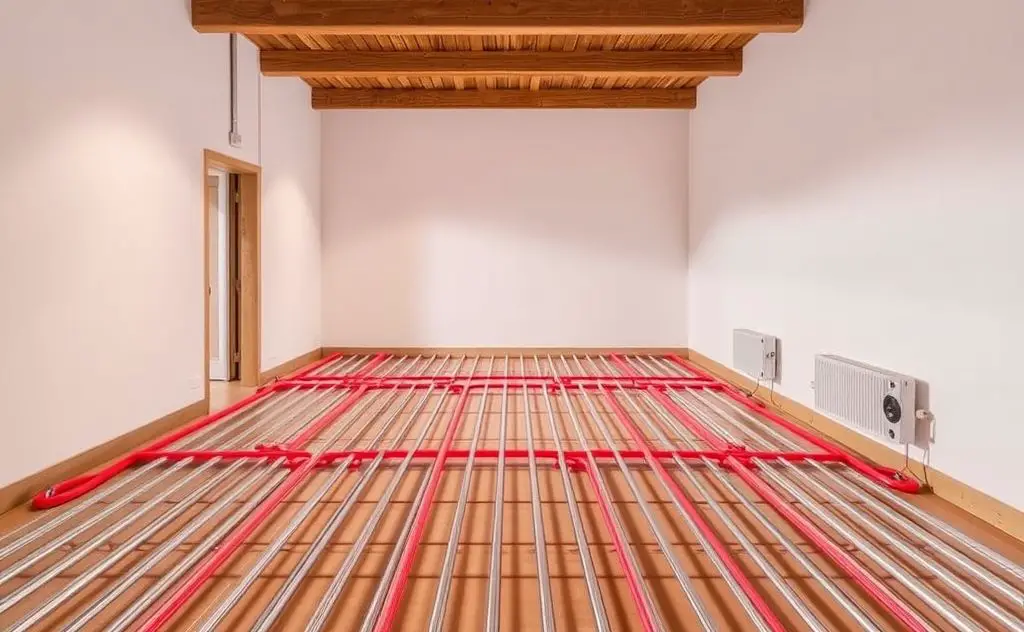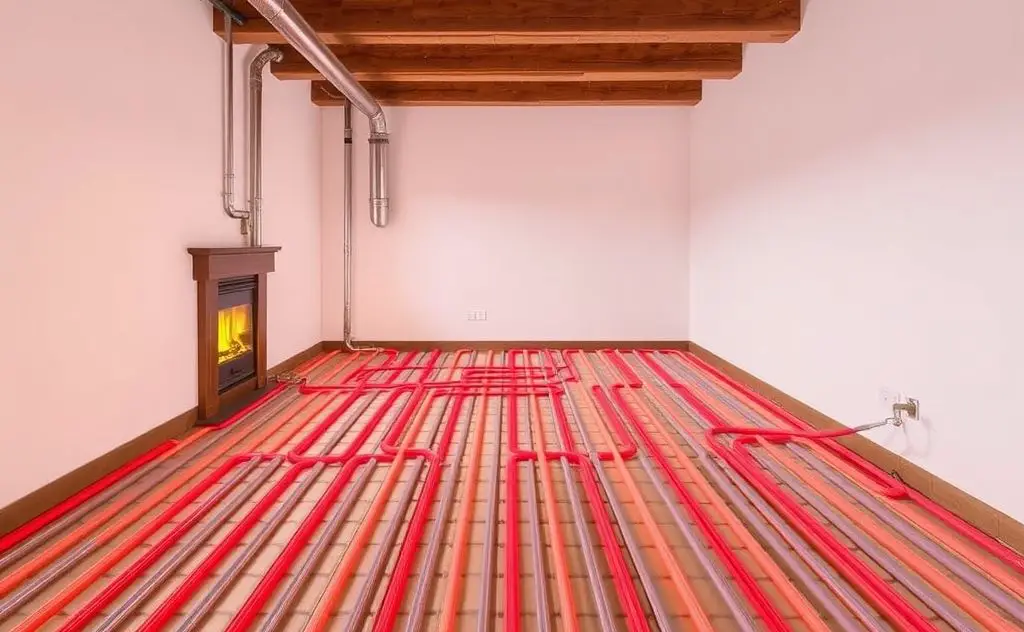Radiant heating offers economic benefits by reducing energy costs, enhancing comfort, and increasing property value through efficient, even heat distribution.
Radiant heating systems deliver warmth directly to floors, walls, or ceilings through infrared radiation. Unlike traditional forced-air systems, radiant heating provides consistent, comfortable heat while offering significant economic advantages. From lower energy bills to increased property value, these systems make financial sense for many homeowners.

1. Lower Energy Costs
Radiant heating systems operate more efficiently than conventional heating methods. Hydronic (water-based) radiant floors use 25-30% less energy than forced-air systems according to U.S. Department of Energy studies. This efficiency comes from:
- Eliminating duct losses (which can waste 20-30% of heat)
- Operating at lower water temperatures (100-120°F vs. 140-180°F for baseboards)
- Distributing heat evenly without cold spots
Electric vs. Hydronic Savings
While electric radiant floors cost more to operate, they can be economical when paired with:
| Feature | Savings Potential |
|---|---|
| Time-of-use electricity rates | 30-50% off-peak |
| Thermal mass (concrete floors) | 8-10 hours of free heat |

2. Reduced Maintenance Expenses
Radiant systems have fewer moving parts than forced-air systems. A well-installed hydronic system can last 30+ years with minimal maintenance:
- No filters to replace monthly
- No duct cleaning required
- No blower motors or fans to service
For boiler maintenance, consider our guide to Rheem water heater igniters if your system uses a tankless water heater.
3. Increased Property Value
Homebuyers pay premiums for radiant heating features:
- 5-10% higher resale value in cold climates
- Faster sale times (67 days vs. 91 days average)
- “Luxury” perception boosts appeal
4. Zone Heating Savings
Radiant systems allow precise temperature control by room. The ASHRAE estimates 10-15% savings from proper zoning:
- Heat only occupied rooms
- Lower temps in bedrooms at night
- Custom schedules for each area
5. Compatibility With Renewable Energy
Radiant floors work exceptionally well with:
- Solar thermal systems (40-60% of heating needs)
- Geothermal heat pumps (300-500% efficiency)
- Biomass boilers (carbon-neutral operation)
For solar options, see our solar pool heater recommendations which use similar technology.
6. Improved HVAC System Lifespan
By reducing load on primary heating systems:
- Furnaces last 5-7 years longer
- Heat pumps require fewer defrost cycles
- Ductwork experiences less thermal expansion stress
7. Health Cost Reductions
While not purely economic, radiant heat improves indoor air quality by:
- Eliminating airborne dust and allergens
- Reducing mold growth (no cold surfaces)
- Maintaining better humidity levels
This can lead to fewer doctor visits and lower medication costs for allergy sufferers.
